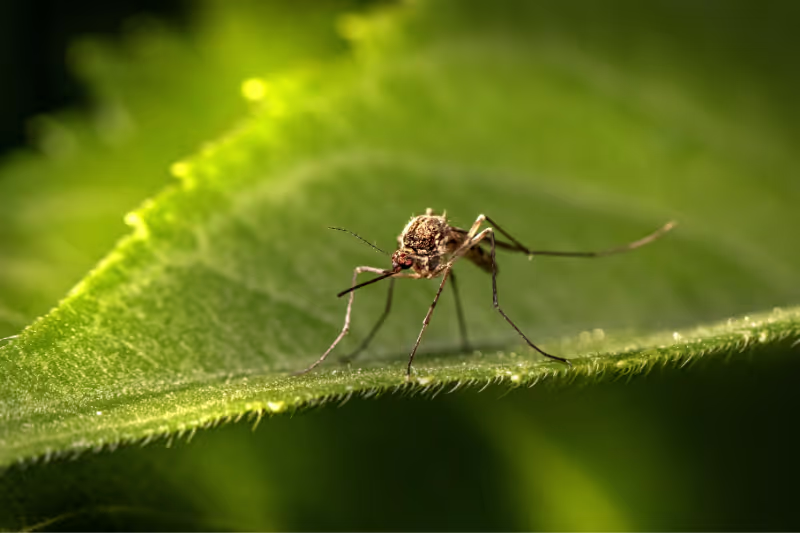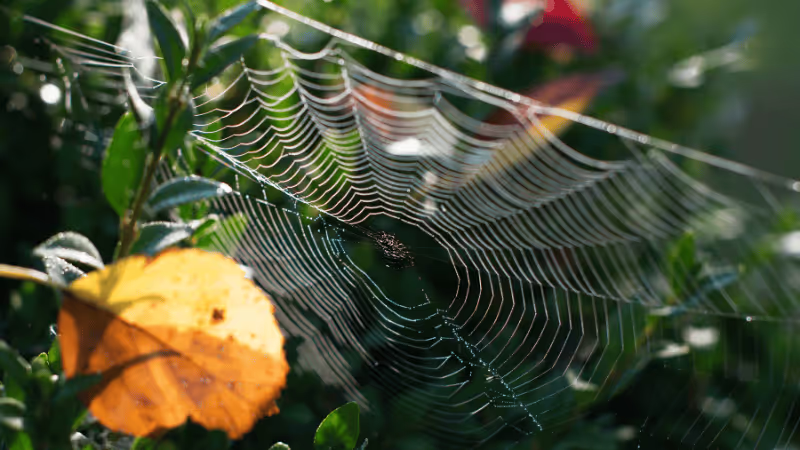Will A Wet Winter Bring More Mosquitoes This Summer? What New Englanders Should Know Before Peak Season Arrives
It’s going to be a busy summer. Take no chances with mosquitoes during the warmer months this year!

This past winter was another rainy one. The good news: the snowfall was not as severe as it has been in previous years! The bad news: continually wet, rainy conditions are often the precursor to one of New England's most common (and infamous) summer pests: the mosquito.
Based on the weather we've been seeing around New England this winter and into the spring, our forecast is simple: mosquitoes are going to be tough, and there are going to be a lot of them. Here's why—and how you can help cut down on populations of pesky biters in your yard this summer.
The Secret to Mosquito Breeding? Just Add Water!
The reason why wet conditions are a tip off that mosquito populations are about to get a boost: standing water is an important part of the mosquito breeding process.
The first three stages of mosquito breeding occur in water. After a recent meal, an adult female mosquito lays eggs directly on or near water, where the eggs will ultimately hatch. As larva, these baby mosquitoes will live in the water, feeding and developing into the next stage of their life cycle: the pupa.
After two days to a week of the pupal stage, a fully grown mosquito emerges from the water. Overall, the process doesn't often take more than a few weeks’ time—and depending on the conditions, it can take as little as 4 days or as long as a month.
The craziest part about this lifecycle? These mosquitoes don't need much water at all in order to survive. In fact, they can breed in as little as one fourth of an inch of standing water.

Think about the possibilities for mosquito breeding that might be sitting around your home and yard right now. Anywhere that rainwater can catch and collect is fair game for a mosquito, whether that's gutters, flowerpots, children's toys and pools, buckets, trash cans, birdbaths, and more.
This is why our first step to mosquito prevention is always to take inventory of where standing water could be found throughout your property and mitigate that risk right away. No standing water—no potential for mosquito breeding. The most effective preventative measures, however, are a bit more complex.
Professional Mosquito Treatment Gets Biters Out, And Keeps Them Out All Year Long
Each year, we treat hundreds of properties throughout New Hampshire, Massachusetts, Maine, Vermont, and Rhode Island to help keep mosquitoes—and ticks—at bay.
Our YardShield series was created to give families and businesses a diverse range of options. Created as the ultimate line of defense against mosquitoes & ticks, our YardShield series matches each customer with a specific treatment frequency that suits their yard and their needs best. For example, our most popular program, YardShield Pro, features a monthly service frequency during the most active mosquito & tick periods—and has been proven to knock down populations by up to 90%.
When we arrive for treatment, we target your woodline, mulch beds, shrub beds, leaf litter, and other hotspots. Our perimeter treatment makes it harder for mosquitoes & ticks to invite themselves onto your property, but also ensures that we're never treating where you and your family are enjoying the outdoors together. In other words: our perimeter treatments keep you and your family safe while keeping mosquitoes & ticks out.
Other programs in the YardShield series include tick only services, a two-week frequency for severe mosquito & tick cases, organic pest control treatment and more. For a comprehensive look at each program, visit our website or get in touch for a free quote.
What You Can Do To Keep Mosquitoes At Bay

Throughout the season, our experienced technicians may make individualized recommendations on ways to further reduce the pest populations on your property, including:
Planting mosquito-repelling vegetation. Citronella Grass (or Lemon Grass) is most commonly used to ward off mosquitoes, but did you know that Lavender and Marigolds are also natural mosquito repellants? Herbs like Rosemary, Basil, and Mint also pack a punch against mosquitoes.
Installing an insect trapper. An additional line of defense in case mosquitoes do get in, these trappers are super effective for controlling populations. We highly recommend the In2Care Mosquito Station, which we can happily install for customers to supplement a YardShield service. This bucket-shaped device attracts both larvae and adult mosquitoes and helps take down surrounding breeding sites in your yard.
Eliminating standing water. As we mentioned earlier, standing water is a key part of the mosquito breeding process—and it only takes a tiny amount of water to make a big difference! By eliminating these water sources, you're ensuring that mosquitoes won't be able to multiply on your property. See below for our cheat sheet of areas to check for standing water around your home.
- Gutters
- Flowerpots
- Grill covers & patio furniture
- Children's toys and pools
- Birdbaths
- Leaky pipes
- Tires
- Trash cans & Recycling bins
- Buckets
- Ponds
Make Your Yard Friendly For Guests, Not Mosquitoes
Our goal is to help families like feel comfortable entertaining in their own home throughout the summer—without the fear or threat from mosquitoes ruining the fun.
Get in touch if you need our help making your yard a mosquito-free zone this summer. The earlier we begin treatment, the more effective our defenses will be against mosquitoes during the peak warm months this summer.
We hope to see you this spring and wish you a happy, bite-free summer for you and your family!



